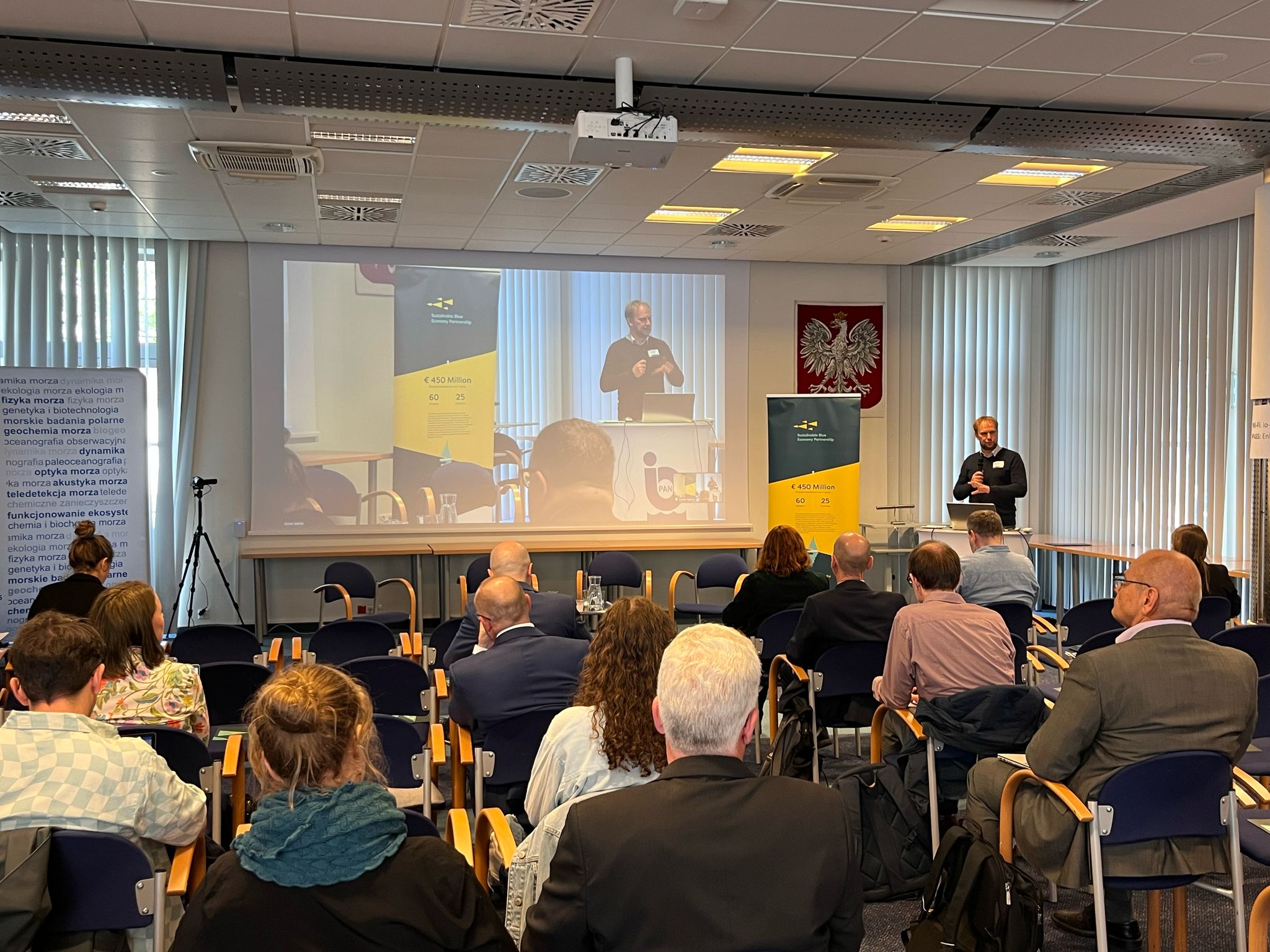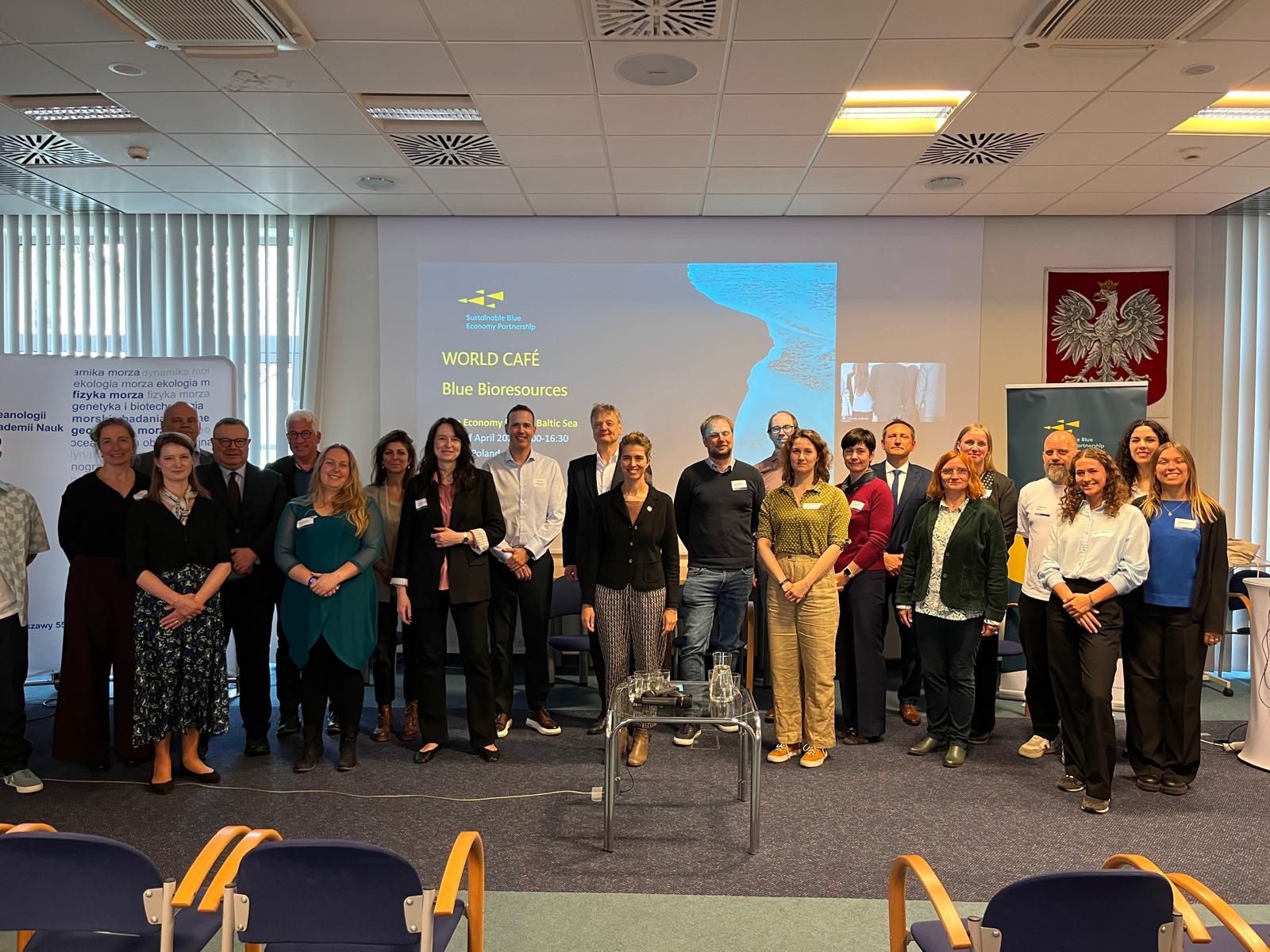- Home
- Voices From The Baltic Sea: a Recap of The Fourth Regional Workshop
Voices from the Baltic Sea: a recap of the fourth regional workshop
On 29 April 2025, the Sustainable Blue Economy Partnership held its fourth and penultimate regional workshop in Sopot, Poland, during the BlueMissionBanos Arena 4. The ‘Blue Economy for the Baltic Sea’ workshop brought together partners, co-funded projects, researchers, civil society, representatives from regional organisations and the private sector to explore the specific challenges and opportunities facing the Baltic Sea basin.
With five thematic sessions corresponding to the Partnership’s 2025 Intervention Areas, the day offered a structured yet open space to exchange on topical issues for the region through a mix of project presentations, strategic perspectives, and practical experiences. Speakers explored key themes such as the use of Digital Twins of the Ocean and ocean data to support decision-making, approaches to protecting and adapting maritime infrastructure, and strategies for building coastal resilience in the Baltic Sea.
Participants also learned about the role of nature-based solutions, the need for integrated data monitoring, and how spatial planning can help balance environmental pressures with growing demands from sectors like shipping and offshore energy. The potential of blue bioresources for circular economies was in focus, too, with conversations covering sustainable aquaculture, bio-based innovation, and the complexities of developing viable value chains.
A central moment in the workshop was the interactive World Café, where participants gathered in smaller groups to discuss the future of fisheries, aquaculture, and the circular bioeconomy in the Baltic Sea. These discussions revealed difficulties the region is grappling with, including environmental damage, declining fish stocks, and socioeconomic consequences, such as workers leaving traditional blue economy jobs for other sectors. At the same time, participants shared examples of innovation, such as the replacement and renovation of fleets to reduce their environmental impact.

Throughout the day, the value of international collaboration and alignment with local priorities was emphasised. Interventions from the Council of the Baltic Sea States (CBSS), the Polish Presidency of the Council of the European Union and other actors highlighted both the need and the willingness to work together. The workshop also provided an occasion to explore synergies with other European Partnerships, such as Zero Emission Waterborne Transport (ZEWT) and the forthcoming Partnership on Social Transformation and Resilience.
The event served as a perfect reflection on how the Sustainable Blue Economy Partnership can support the ongoing work of regional organisations – including research centres, startups and intergovernmental platforms – and how, in turn, regional insights can shape future calls and priorities. A full report is available here, with the input received feeding into our regional portfolios.
The final workshop in the series will focus on the All-Atlantic region and will take place on 21 May, during the European Maritime Day in Cork.


